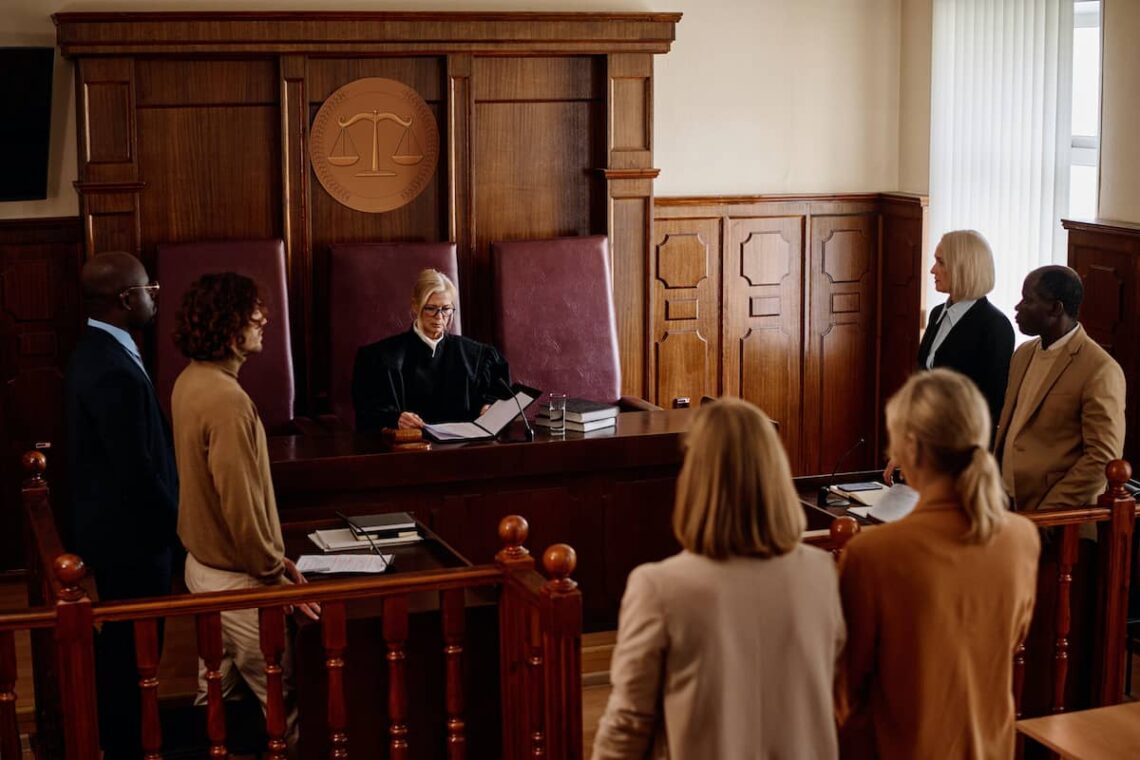
Whether you are grappling with a past mistake or a misunderstanding that left a mark on your criminal record, understanding the pathway to a clean slate is important. This is where the expertise of an experienced expunction attorney in Texas becomes invaluable.
In Texas, expunction is not just a legal process; it is a doorway to a new beginning, freeing individuals from the shadows of their past. But what does expunction truly entail, and how does it differ from non-disclosure? How much does it cost, and who qualifies? Read further to learn everything you need to know about expunctions in Texas.
What Does Expunction Mean in Texas?
In Texas, an expunction allows individuals to erase arrests and charges from their criminal records, as if they never occurred. This legal process offers a second chance to those who seek to move forward without the burden of past legal issues.
According to Texas Code of Criminal Procedure, Chapter 55, an expungement can completely remove all records of an arrest, charge, or conviction under certain conditions.
Eligibility for expunction in Texas is quite specific, and generally only applies to:
- Arrests that never led to a charge.
- Charges that were dismissed.
- Certain qualifying misdemeanors committed by juveniles.
- Convictions for minor alcohol offenses by minors.
- An arrest, charge, or conviction on one’s record due to identity theft by someone else who was actually arrested, charged, or convicted; and
- Convictions set aside by pardon or other court orders.
Expunction is a road paved with strict legal requirements, but for those who qualify, it represents a future unblemished by a past that no longer defines them.
How Is Expunction Different From Non-Disclosure?
While expunction can erase criminal records, making it as though the incident never happened, a non-disclosure order does not erase the record but seals it from the public. Under a non-disclosure agreement, the record still exists but is not accessible to most employers, landlords, or the general public, preserving an individual’s privacy and preventing the incident from influencing their future opportunities. However, with a non-disclosure, certain government agencies and related entities will still have access to these records. So, the difference between expunction and non-disclosure lies in visibility; expunction offers a complete erasure, while non-disclosure offers privacy.
How Much Does Expunction Cost in Texas?
The cost of expunction in Texas can vary widely based on the complexity of the case and the attorney’s fees. Generally, filing fees for the expunction petition can range from $100 to $300, but the total cost can increase significantly when you include attorney fees, which are crucial for navigating the complexities of the expunction process. An individual should think of these costs as an investment in their future, offering a return that is truly invaluable: freedom from past mistakes.
What Cannot Be Expunged?
Not every criminal record can be expunged in Texas. Certain limitations exist, including:
- Convictions for adult crimes, except for some minor offenses.
- Arrests or charges that led to convictions (unless the conviction was later acquitted or pardoned).
- Certain sex offenses, even if they were dismissed; and
- Driving while intoxicated (DWI) charges, whether dismissed or convicted.
Understanding what cannot be expunged highlights the specificity of the expunction process and underscores the importance of guidance from a skilled Texas expunction attorney.
Will an Expungement Show Up on My Record?
Once an expungement in Texas is granted, all evidence of the arrest or charge effectively “disappears” from your record. It will not show up on most background checks conducted by employers, landlords, or non-governmental agencies, allowing you to certify that you have not been arrested or charged with the expunged offense. This clean slate is a powerful step toward a future unburdened by past mistakes.
Who Qualifies for an Expungement in Texas?
Qualification for expungement in Texas is determined by several factors, including the type of charge, the outcome of the case, and the amount of time that has passed since the arrest or charge. As outlined earlier, those eligible for expunction in Texas primarily include individuals who:
- Were arrested but not charged
- Had their charges dismissed; or
- Meet specific criteria related to juvenile offenses or identity theft.
To find out if you qualify for an expunction in Texas, it is best to consult with a seasoned Texas expunction attorney.
How Long Does An Expunction Take?
The expunction process in Texas can take anywhere from 4 to 6 months, depending on the complexity of the case and the court’s schedule. This time frame includes filing the petition, serving notices to all relevant agencies, and waiting for the court’s decision. Patience is key, as this process is thorough, ensuring that once an expunction is granted, the record is permanently erased.
The Importance of an Experienced Expunction Attorney in Texas
Seeking an expunction in Texas without a qualified criminal defense attorney is like navigating a ship through stormy seas without a compass. The legal process of expunging a record is complex, governed by specific legal statutes, and requires a deep understanding of the Texas legal system. By enlisting the assistance of a skilled expunction attorney, Texas residents who have been arrested, charged, or convicted of a crime in their pasts may be able to clear their criminal records, restore their reputations, and open doors to opportunities that were previously closed to them.
Conclusion
An expunction can mark the beginning of a new chapter of your life without the burden of past legal issues affecting your opportunities for employment, housing, or other personal and professional pursuits. If you are looking to clear your criminal record and embrace a future free of past encumbrances, we encourage you to reach out to an experienced expunction attorney in Texas. Everyone deserves a second chance to make a first impression.
